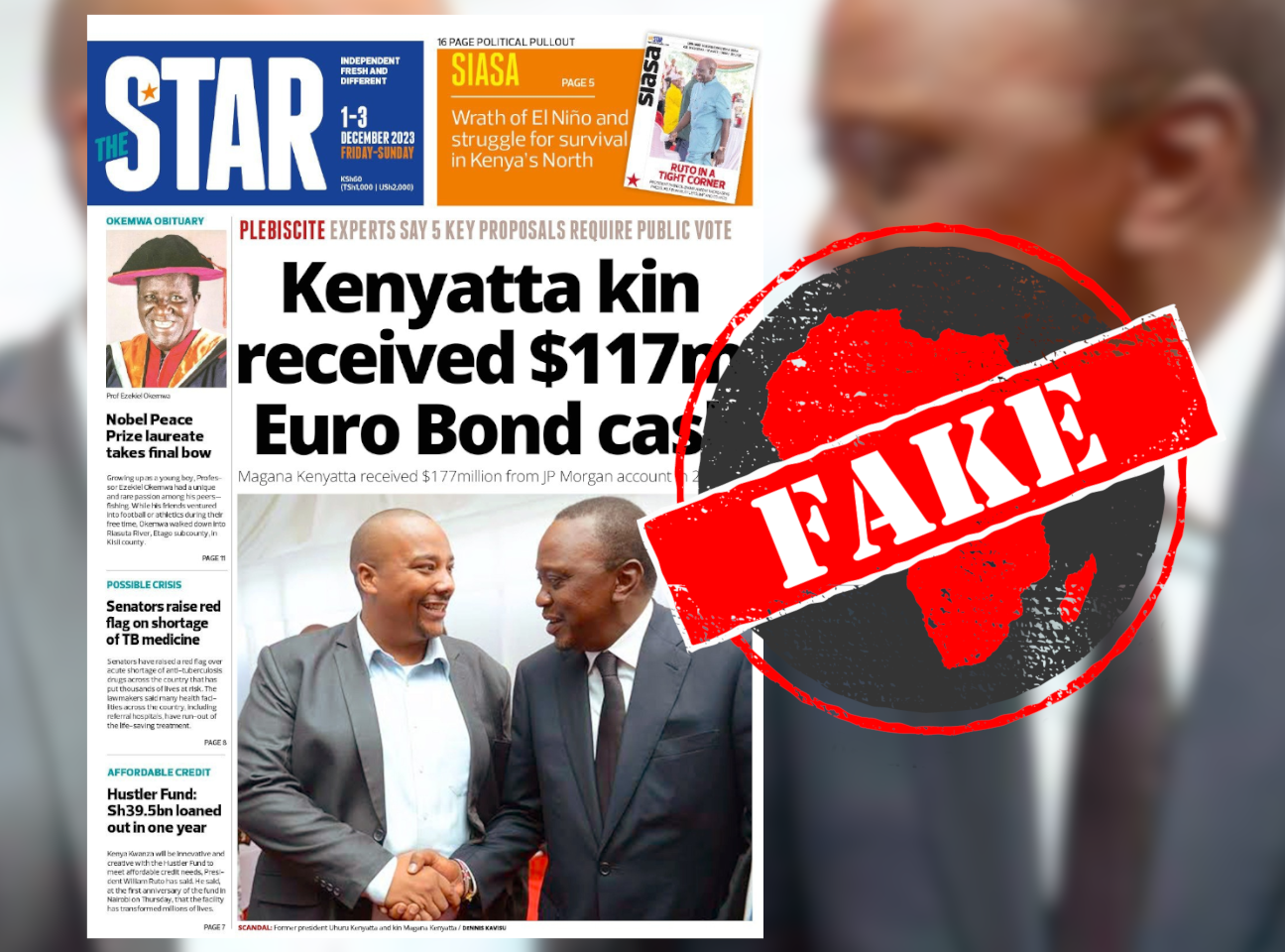IN SHORT: Fake newspaper covers are increasingly circulating on Kenyan social media. One example is a cover story claiming that the family of former president Uhuru Kenyatta received US$117 million from Eurobonds.
An image of what appears to be the front page of the Kenyan newspaper the Star has been shared online in Kenya. It’s headlined: “Kenyatta Kin received $117m Euro Bond cash.”
The circulating cover is dated 1-3 December 2023.
The page features a picture of Kenya’s former president Uhuru Kenyatta greeting Magana Kenyatta, identified here as his “kin”. The strapline adds: “Magana Kenyatta received $177 million from JP Morgan account in 2014.”
In June 2014, Kenya issued a US$2 billion Eurobond to supplement its public spending. A Eurobond is a loan given out in a currency that is different to the currency of the country in which it is issued.
With the Eurobond maturing in June 2024, the Kenyan government has struggled to formulate a strategy to repay the bond. This has revived concerns about corruption and the tracking of public spending in the country.
The cover has also been shared here, here, here and here. But is this a legitimate front page of the Star newspaper? We checked.

‘Fake news alert’
On 1 December 2023, the Star posted the circulating front page on its social media accounts with the word “fake” printed across it in red.
“FAKE NEWS ALERT: This is not our today's front page. Treat it as FAKE,” reads the post on the official X, formerly Twitter, account.
Africa Check also looked through the Star's front page archive and found that none of the front pages from 1, 2 or 3 December matched the front page in circulation.
The circulating front page is fabricated and should be disregarded.
Republish our content for free
For publishers: what to do if your post is rated false
A fact-checker has rated your Facebook or Instagram post as “false”, “altered”, “partly false” or “missing context”. This could have serious consequences. What do you do?
Click on our guide for the steps you should follow.
Publishers guideAfrica Check teams up with Facebook
Africa Check is a partner in Meta's third-party fact-checking programme to help stop the spread of false information on social media.
The content we rate as “false” will be downgraded on Facebook and Instagram. This means fewer people will see it.
You can also help identify false information on Facebook. This guide explains how.



Add new comment